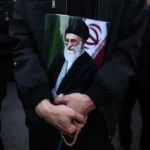
Trump announces alleged sale of Tiktok in the US: “Group of very rich people” would be interested in buying platform; Experts see more theater than Real Plan, and warn that without the algorithm, any sale will be just a facade for political purposes
In another movement that mixes politics, technology and international relations, US President Donald Trump said on Sunday (29) found a “very rich group of people” interested in acquiring US Tiktok operations. The statement was given during an interview with Fox News network, rekindling the debate about the presence of the Chinese company in the country and the consequences of a possible change of control.
Also read: Ukraine feels more intense bombardment since 2022
Trump’s announcement arises amid prolonged impasse involving the US government’s requirement for Bytedance-Tiktok’s Chinese mother company-sells its activities in the United States or will face a national ban. The most recent deadline, set for September 17, has been postponed three times since the beginning of the year, highlighting the complexity of negotiations and resistance from China.
“We have a buyer for Tiktok,” Trump said with his characteristic tone of trust. “I think I will probably need China’s approval, and I believe President XI will do that.” About the possible names behind the investor group, the former president preferred to keep suspense: “I will count on about two weeks… It’s a group of very rich people.”
Despite the optimistic rhetorical, experts warn that any agreement will depend not only on the Chinese government’s agreement, but also on the disposal of Bytedance itself in giving up the platform’s strategic control, especially in relation to Tiktok’s central algorithm – a highly sensitive tool that defines the content presented to users.
Agreement under International Lupa
According to information released earlier by Financial Timesthe White House would have discussed a scheme involving large US private capital funds such as Andreessen Horowitz, Blackstone, Silver Lake and other powerful financial market players.
In this scenario, these groups could stop about 50% of Tiktok’s local operations, while old investors of the application, such as General Atlantic, Susquehanna, KKR and Coatue, would have approximately 30%.
Even with this initial sketch, the reality is that China has been clear: it does not intend to facilitate the output of the direct control of the platform. In April, Beijing had already publicly expressed his opposition for sale, and the rates imposed by Trump on the Asian giant at the same time seem to have cooled the negotiation environment even more.
In addition, the fact that the Tiktok algorithm is officially registered as an intellectual property in the Chinese database makes any technological transfer a true diplomatic field. Experts point out that this would be a fundamental condition to satisfy the American executive order, which threatens to close the platform if it is not sold.
Irony and criticism of Trump’s foreign policy
While Trump tries to sell the narrative of an imminent agreement, on the other, his stance reflects what many consider a contradictory and makeshift approach to delicate national security and international relations. While promising to solve the Tiktok problem, he himself feeds uncertainties by postponing deadlines and making vague ads without revealing concrete details.
His personal reference to Chinese President Xi Jinping, as someone who will “probably do” whatever is needed, sounds almost innocent in the face of the history of tensions between Washington and Beijing – tensions that Trump helped aggravate with nationalist protectionist and rhetorical policies.
If there is something clear in this whole story, it is that China does not seem willing to give in easily, especially when it comes to technology as valuable as the Tiktok algorithm.
Meanwhile, the world is looking forward to seeing if such “rich investors” really exist or if an electoral promise is being sewn on social networks and conservative news channels. So far, Tiktok has not responded to requests for commentary on the subject, but certainly watched each movement from Washington.
While Trump tries to turn the Tiktok theme into a campaign flag – including crediting the platform part of its popularity among young voters – analysts continue to warn that the issue goes far beyond a simple commercial transaction.
It is a geopolitical game where economic interests, digital sovereignty and national security intertwine in a complex way.
And if the recent past teaches something, it is that trusting the former president’s promises can be as risky as downloading a Chinese app without knowing who really controls his data.
With information from Financial Times*
Source: https://www.ocafezinho.com/2025/06/30/tiktok-vira-moeda-no-jogo-eleitoral-de-trump/

